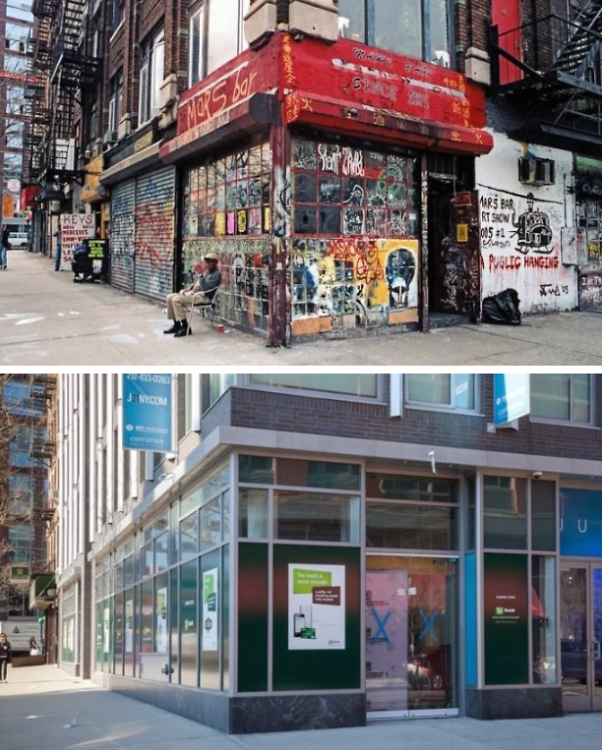Oil and Water: Sustainable Urban Greening and Gentrification

(Photo taken from guestofaguest.com, "Changing Face of New York City.")
I recently read an opinion piece from ensia.com, a solutions-focused nonprofit media outlet reporting on our changing planet, titled "Urban Greening is Good for the Environment. Let’s Ensure it's Good for Local People, too." While I know my education has included conversations on environmental gentrification, or the process in which seemingly sustainable discourse is used and manipulated to increase property value and subsequently displace low-income residents, I still feel as though this is something that almost hasn't been discussed enough (but that could just be my feminist sociology background, were I am accustomed to studying from the perspective of the oppressed members of our Western society looking up). Curious about the overall impacts of gentrification in the United States, I consulted the National Community Reinvestment Coalition (NCRC) for more information.
According to a study they published in March 2019, the NCRC "identified more than 1,000 neighborhoods in 935 cities and towns where gentrification occurred between 2000 and 2013." This appeared to be most intense in the nation's largest cities, while simultaneously remaining rare or virtually non-existent in others. Of the 1,000 neighborhoods measured, 230 of them saw increased rent, property value, and taxes which systematically worked to force out more than 135,000 long-standing residents. This information was gathered using a mixture of economic data for the area as well as the US Census Bureau report for a comparative analysis.
In addition to gentrification happening within city neighborhoods, however, entire cities can become gentrified concentrations of wealth and force virtually all low-income residents out - all the while small towns in rural America, particularly those with more low-income and poverty-line households. This has become so exaggerated that now only 7 cities amount for over half of US gentrification: New York City, Los Angeles, Washington, D.C., Philadelphia, Baltimore, San Diego and Chicago.
As we move forward in an attempt to foster environmental restoration and sustainability nationwide, it is important to remember that our focus must not just be a goal of a sustainable world but a sustainable world for all. A feminist sociological perspective could lend a hand in teaching us that it is "unfavorable" (to say the least) to arrive in to a new area, sporting a dominating vision, whilst in a position of power, attempting to facilitate unwanted change... without first asking those on the bottom: how can we include you in our vision?


Comments
Post a Comment